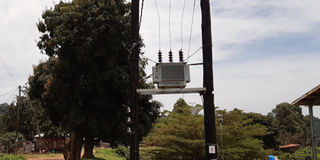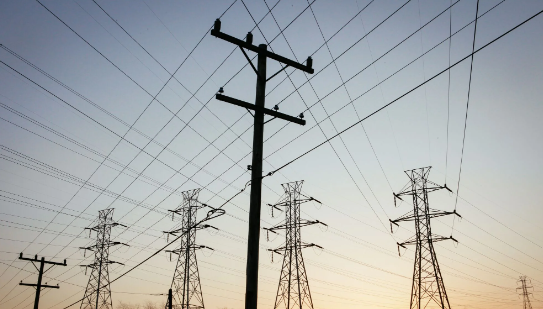Compensation hindering rural electrification projects

One of the new transformers erected in Kalangala Town Council in Kalangala District. PHOTO | SYLVESTER SSEMUGENYI
What you need to know:
- The Head of Rural Electrification, Ms Joan Kayanga, stated that as the project nears its end, compensating Project Affected Persons (PAPs) in some communities has posed significant difficulties.
Compensation remains one of the major challenges in implementing the Rural Electrification Phase 1 project, which is set to conclude in December 2024, according to officials from the Ministry of Energy and Mineral Development.
The Head of Rural Electrification, Ms Joan Kayanga, stated that as the project nears its end, compensating Project Affected Persons (PAPs) in some communities has posed significant difficulties.
She emphasised the need for the public to appreciate the government’s efforts to bring services closer to communities, acknowledging that development comes with costs and that if all affected individuals were compensated, project implementation would become extremely challenging.
Ms Kayanga illustrated this by explaining that compensating people for land through which a power line passes would impede the government’s plans to provide power access to those communities. She noted that Uganda has one of the lowest electricity access rates in the region.
Consequently, the project often targets communities that are more receptive, with or without compensation.
“We are constantly busy with our projects. If a community is hesitant and demands compensation, we move on to communities willing to accept the project without compensation,” Ms Kayanga said.
Ms Kayanga made these remarks on behalf of the Permanent Secretary of the Ministry of Energy and Mineral Development, Ms Irene Bateebe, during a three-day training workshop for environmental officers, community development officers, engineers, and representatives from the National Forest Authority, National Environment Management Authority, Uganda Wildlife Authority, and contractors on environmental and Social Safeguards in Jinja City.
She added that instead of demanding compensation, communities should collaborate with local leaders to facilitate power accessibility.
Mr Samuel Bishop, the project coordinator of the Uganda Rural Electricity Access Project, said the project, which began in 2015 and is funded by the African Development Bank at $121 million (about Shs445 billion), is scheduled to end in December.
Despite budget cuts, the project has faced significant challenges, including vandalism of power lines and other equipment by detractors.
“We faced challenges from the procurement process, and vandalism has been a major setback. Equipment is often stolen, hampering our progress,” Mr Bishop explained.
He clarified that the project does not purchase land for placing poles but compensates for damaged crops and trees, though the compensation rates are not highly appreciated.
More than 40,000 PAPs are to be compensated, but only about 3,000 have received payments thus far.
The project aims to provide sustainable and affordable electricity to rural Ugandan households, public infrastructure, schools, and health centres in about 16 districts, including Iganga, Luuka, Mbale, Serere, Alebtong, Soroti, Amuria, Kaliro, Buyende, and Kalangala, with a 7km submarine cable to Bugala Island.
Several speakers, including environmental officers and psychologists from construction companies, said local communities often feel ignored until resistance arises.
Mr Moses Kato, the senior environmental officer from the Ministry of Energy and Mineral Development, stressed the importance of documenting issues before project implementation begins.
Mr James Okot from the National Forest Authority raised concerns about replacing wooden electricity poles with concrete ones, questioning the implications for tree farmers.
However, Mr Kato responded that concrete poles are only used in areas with termite issues to prevent accidents.





